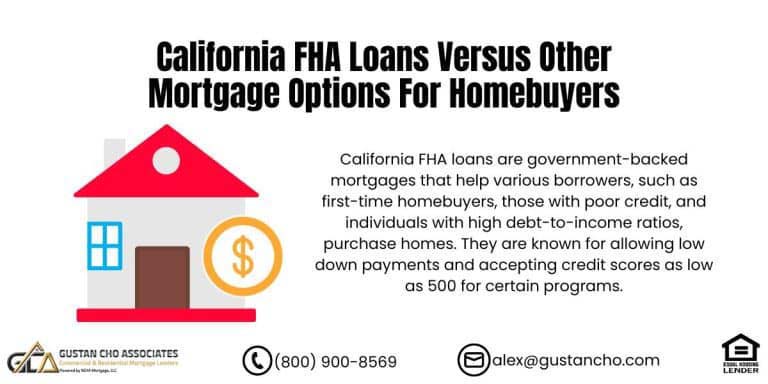This guide covers qualifying for a home loan without spouse mortgage guidelines. There are many reasons why home buyers want or need a home loan without spouse on the mortgage note. Homebuyers can qualify for a home loan without spouse on the mortgage note. They can have the spouse on the deed as joint owners to the property.
Some married folks have a relationship of what is mine is mine and what is yours is yours. Some may not want the spouse to have any ownership to the home they are buying, which this can be done as well.
Borrowers who have a spouse who does not have qualified income and cannot use any of their income do not have to add the spouse on the mortgage loan. On many cases, having a home loan without spouse may be the only option in getting a home mortgage due to debt or credit issues. In this article, we will cover and discuss home loan without spouse mortgage guidelines on home purchase.
Reasons Why Buyers Would Get Home Loan Without Spouse
Just because homebuyers are not on the home loan does not mean they cannot have ownership to the home. In cases where one spouse is a homemaker and has no income, there is no reason why the non-working spouse should be on the home loan. The spouse can be on title to the property. On community property states, the non-borrowing spouse has mandatory 50% ownership to the home purchase. This regardless of whether or not they are on the mortgage note.
Ready to Buy a Home Without Your Spouse? We Can Help You Get Approved!
Contact us today to explore your mortgage options and get pre-approved for your new home.
Buying a House Without Including Spouse in Mortgage Application
A common scenario is applying for a home loan without including a spouse in the mortgage application. It can be done for various reasons, such as differences in credit scores, employment status, or debt levels. Here are the key guidelines and considerations for obtaining a home loan independently of your spouse:
Credit Scores and Qualifications
When you apply for a mortgage without your spouse, the lender will only consider your income, credit history, and debt-to-income (DTI) ratio. You can qualify for better loan terms if your credit score and financial history are strong. This can be advantageous if your spouse has a lower credit score or higher debt levels that could negatively impact your application.
Income and Affordability
Only your income will be considered for the loan application, meaning the loan amount you qualify for might be lower than if you applied jointly. You’ll need to ensure that your income is sufficient to cover the mortgage payments and other housing costs (like property taxes, homeowner’s insurance, and maintenance).
Property Ownership
Even if only one spouse is listed on the mortgage, both spouses might still be able to hold title to the property. This means both can have ownership rights, depending on how the title is held. It’s common to have one spouse on the mortgage and both on the title, especially in community property states.
Legal and State Considerations
In community property states (like California, Texas, and Arizona), even if one spouse is not on the mortgage, their credit history and debts might still need to be considered when applying for an FHA or VA loan due to state law regarding marital assets.
Impact on Qualifying for Future Loans
Applying for a mortgage without your spouse means that any future debt servicing calculations for your spouse won’t include this mortgage, potentially making it easier for them to qualify for their loans based on their debt-to-income ratio.
Risk and Responsibility
If you apply for the mortgage alone, you are legally responsible for the mortgage payments alone. This can add financial pressure since you won’t be able to legally rely on your spouse’s income to meet mortgage payments if your financial circumstances change. If you decide to proceed with a mortgage application without including your spouse, make sure you are well-prepared financially and legally to handle the loan’s commitments and responsibilities. It’s important to weigh all these factors carefully to make the best decision for your financial health and family situation.
Consulting Professionals
It’s wise to consult with a mortgage broker or financial advisor to understand the best course of action. They can provide insights tailored to your specific financial situation and goals. Additionally, speaking with a lawyer might be beneficial in understanding the legal implications, especially regarding property rights and obligations.
Home Loan Without Spouse Mortgage Guidelines With Low Credit Scores
Another reason why a home buyer would need a home loan without spouse is due to the spouse having a low credit score:. Also not meet the mandatory minimum credit score requirements to qualify for a mortgage loan is another reason. Lenders will always use the middle credit scores of the lower credit score borrowers.
The only way to qualify for home loan is to leave the co-borrower spouse off the home loan. Leaving low credit score spouse off the loan also means the borrower cannot use the spouse’s income to qualify for the home loan.
For example, if the main borrower’s middle credit scores are 590 and the co-borrowers middle credit score is 550, the lower of the two, 550, will be used to qualify for the home loan. Unfortunately, the minimum credit score requirement for a 3.5% down payment FHA home purchase mortgage loan is 580. So by having the co-borrower with a 550 credit score on the mortgage loan, this couple will not qualify.
Home Loan Without Spouse Due To No Income and High Debt
By not adding the spouse on the home loan does not mean the spouse does not have ownership to the property. Spouses can be on title and not on the mortgage note. On another case scenario is when a spouse has high debt. Adding the spouse will hurt and negate the main borrower’s debt-to-income ratios.
Here is a case scenario: The spouse may have part-time income but may have two car payments also may have large student loan payments on their name monthly debt payments will negate the gross income.
Ultimately hurt the overall income profile of the main borrower. On case scenarios like these is to apply for home loan without spouse. Another typical common case scenario for leaving the spouse off the loan is when the spouse is self-employed and does not have positive income. Spouse just has large losses on their income tax returns. This will hurt the borrower and the best option for cases like these is to leave the spouse off the home loan.
Looking to Buy a Home Without Your Spouse? We’ve Got the Solutions You Need!
Qualifying for a home loan without a spouse is possible! Reach out today to discuss your options and get pre-approved for your mortgage.
Home Loan in Community Property States
Home loans in community property states are different than non-community property states. In community property states, all assets and debts that incurred after the marriage belongs to both spouses, whether it is in writing or not. When applying for a home loan in community property states, lenders will look at both spouses debt on FHA loans.
Conventional loans are different and the other non-borrowering spouse’s debt does not have to be included. This holds true even though one of the spouses is a non-borrower and not on the mortgage note.
The philosophy in community property states is What is yours is mine and what is mine is yours. Home loans in community property states do not require the non-borrower’s income or credit scores but do count the borrower’s debt. The debt prior to marriage is not counted unless those debts are added on after marriage.
List of Community Property States
There are nine community property states in the United States and these states are the following:
- Arizona
- California
- Idaho
- Louisiana
- Nevada
- New Mexico
- Texas
- Washington
- Wisconsin
If homebuyers live in these nine states and they are applying for government loans such as FHA, USDA, or VA Loans, then the mortgage lender will look at the debts of both spouses. They will not look at the credit scores of the non-borrowing spouse but will only look at the monthly debt obligations. This does not apply to conventional loans. For more information on this topic and/or other mortgage-related topics, please contact us at Gustan Cho Associates at 800-900-8569 or text us for faster response. Or email us at gcho@gustancho.com.
Need a Home Loan Without Your Spouse? We’ll Help You Secure Financing!
Reach out now to explore your options and take the first step toward homeownership.










